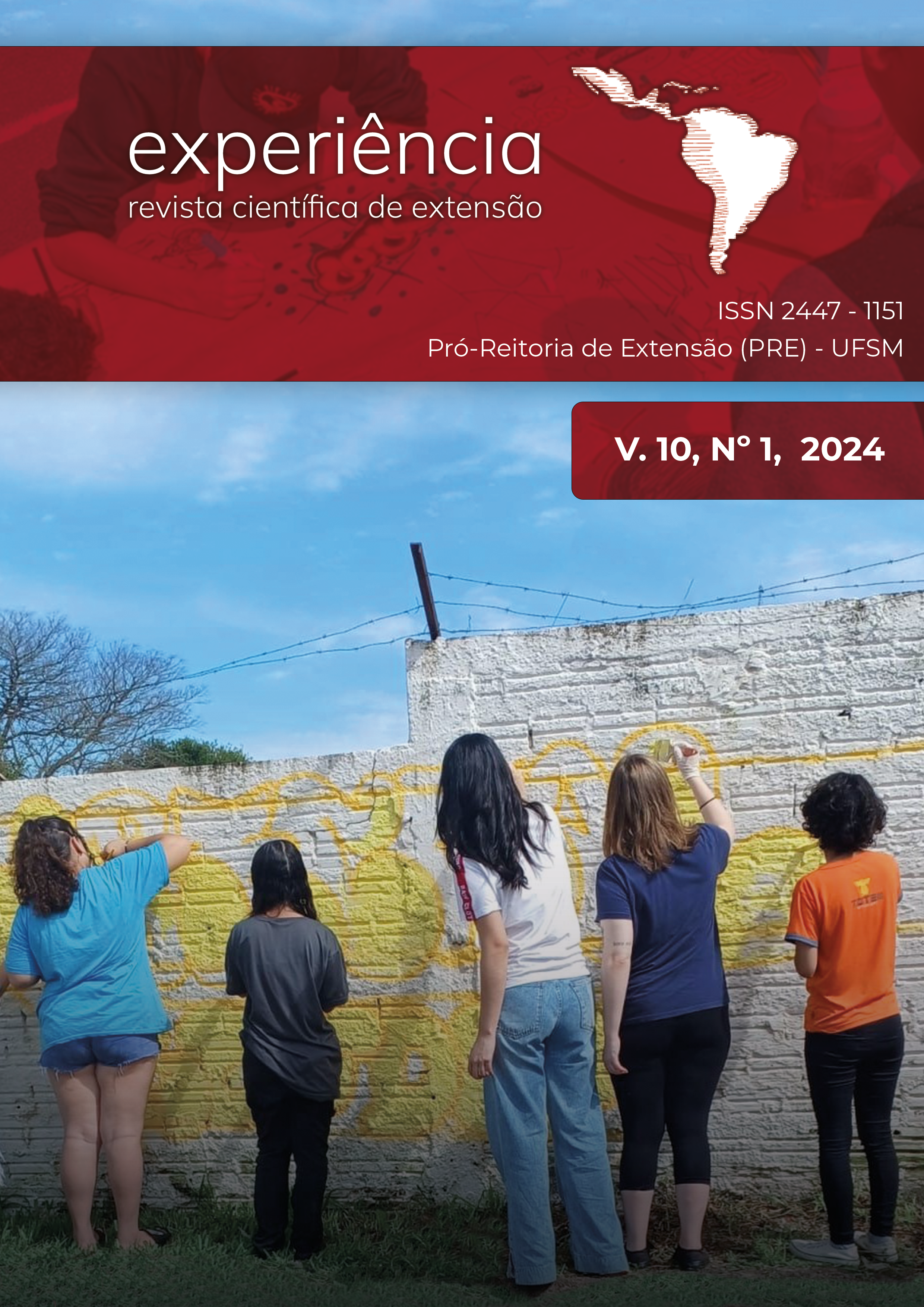Processing of non-market potatoes for use in a social project to provide meals
DOI:
https://doi.org/10.5902/2447115186670Keywords:
Sustainability, Pandemic, Food Technology, Food insecurityAbstract
According to the FAO, approximately one-third of all food produced worldwide is lost at some point in the production chain or wasted later. When it comes to plant-based foods, which are highly perishable, these rates can be even higher. The other extreme of this equation is food insecurity, which affects a significant portion of the world’s population and has been exacerbated by the COVID-19 pandemic. The present study aimed to provide training in Good Manufacturing Practices and Food Handling by processing approximately 1600 kg of discarded potatoes donated to the “Mesa Fraterna” project. This project is responsible for preparing and distributing meals to the vulnerable population in the municipality of Diamantina, MG. With the participation of 16 undergraduate students, two professors, one administrative technician from UFVJM, and ten volunteers from the local community, the project facilitated interaction between community members and the university. It also provided training for these volunteers in good manufacturing practices and simple vegetable processing technologies that can be applied in a domestic setting.
Downloads
References
BAKER, C. A.; GIBSON, K. E. Persistence of SARS-CoV-2 on surfaces and relevance to the food industry. Current Opinion in Food Science, v. 47, p. 100875, 1 out. 2022. Disponível em: https://www.sciencedirect.com/science/article/pii/S2214799322000777. Acesso em: 10 de jan. 2023. DOI: 10.1016/j.cofs.2022.100875.
BICALHO, D. et al. O Programa Nacional de Alimentação Escolar como garantia do direito à alimentação no período da pandemia da COVID-19. DEMETRA: Alimentação, Nutrição & Saúde, v. 15, n. 0, p. 52076, 31 out. 2020. Disponível em: https://www.e-publicacoes.uerj.br/index.php/demetra/article/view/52076. Acesso em: 10 de jan. 2023. DOI: doi.org/10.12957/demetra.2020.52076.
BORSATTO, R. et al. Respostas dos municípios para garantir segurança alimentar e nutricional em tempo de pandemia. SciELO Preprints, 2020. Disponível em: https://preprints.scielo.org/index.php/scielo/preprint/view/163. Acesso em: 11 de jan. 2023. DOI: 10.1590/SciELOPreprints.163.
GUEDES, A. Retorno do Brasil ao Mapa da Fome da ONU preocupa senadores e estudiosos. Agência Senado. Disponível em: https://www12.senado.leg.br/noticias/infomaterias/2022/10/retorno-do-brasil-ao-mapa-da-fome-da-onu-preocupa-senadores--e-estudiosos::: :text-Em%202022%2C%20o%20Segundo%20Inqu%C3%A9rito,brasileiros%20em%20situa%-C3%A7%C3%A3o%20de%20fome. Acesso: 04 maio 2024.
MIERZWA, D. et al. Effect of ultrasound on mass transfer during vacuum impregnation of low-porous food materials on the example of potato (Solanum Tuberosum L.). Chemical Engineering and Processing - Process Intensification, v. 188, p. 109375, 1 jun. 2023. Disponível em: https://www.sciencedirect.com/science/article/pii/S0255270123001125. Acesso em: 9 de jan. 2023. DOI: 10.1016/j.cep.2023.109375.
SAMPAIO, S. L. et al. Potato peels as sources of functional compounds for the food industry: A review. Trends in Food Science & Technology, v. 103, p. 118–129, 1 set. 2020. Disponível em: https://www.sciencedirect.com/science/article/pii/S0924224420305446. Acesso em: 10 de jan. 2023. DOI: 10.1016/j.tifs.2020.07.015.
SILVA, M. S. et al. CUIDADOS E CONTROLES NA MANIPULAÇÃO DE ALIMENTOS. Recife: Even3 Publicações, 2021. DOI 10.29327/541316.
SIPIONI, M. E. et al. Masks cover the face, hunger unmasks the rest: covid-19 and the fighting against hunger in Brazil. SciELO Preprints, 2020. Disponível em: https://preprints.scielo.org/index.php/scielo/preprint/view/660. Acesso em: 10 jan. 2023. DOI: 10.1590/SciELOPreprints.660
WIJNGAARD, H. H.; BALLAY, M.; BRUNTON, N. The optimisation of extraction of antioxidants from potato peel by pressurised liquids. Food Chemistry, v. 133, n. 4, p. 1123–1130, 15 ago. Disponível em: https://www.sciencedirect.com/science/article/pii/S0308814611003037. Acesso em: 10 jan. 2023. DOI: 10.1016/j.foodchem.2011.01.136
Downloads
Published
How to Cite
Issue
Section
License

This work is licensed under a Creative Commons Attribution-NonCommercial-ShareAlike 4.0 International License.








